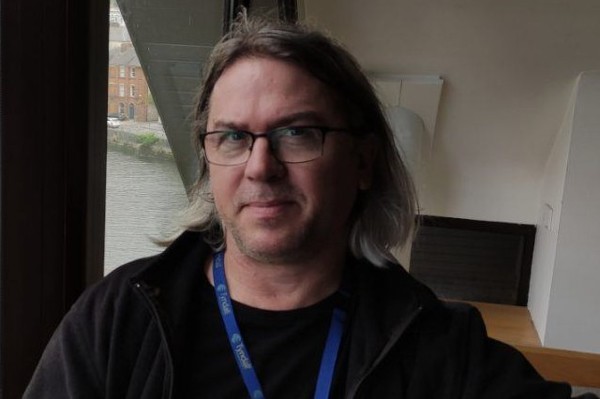
Dr Ray Duffy describes the potential impact of discoveries in nanoelectronics as ‘truly global’ in a recent interview with Silicon Republic.
As far as Dr Ray Duffy is concerned, the real heroes of science are the teachers who inspire their pupils to take an interest in STEM subjects. He sees that early experience as laying “the foundations for people to get excited by science and technology”.
“That is often the starting point from which people go into the field of research.
“I would say … we owe a debt to the teachers who get students engaged in [STEM].”
Duffy is a principal researcher at the Tyndall National Institute and a fellow in the School of Engineering at University College Cork.

Tyndall.
His research concerns emerging materials and devices for future nanoelectronic, ICT, sensing and quantum applications. In the past five years, he has been the principal investigator or named collaborator on various projects funded by Science Foundation Ireland (SFI), Enterprise Ireland and EU Horizon 2020.
Just last month, Duffy and his University of Galway collaborator, Prof Ger O’Connor, announced a new project funded by SFI Frontiers of the Future. The project will research advanced and smart manufacturing to increase scalability, functionality and energy efficiency of electronic devices.
Tell us about your current research.
I’m working in the field of advanced nanoelectronic devices, such as the silicon transistor, which is the basic building block of many electronic circuits and systems.
The transistor is essentially the ‘0’ or ‘1’ bit, depending on whether electronic current can flow through it. Transistors are seen in a vast variety of application areas spanning consumer electronics, healthcare, security, sensing and the Internet of Things, to name a few.
More specifically, I’m exploring new ways of fabricating, designing and understanding transistors and other electronic devices, such as quantum electron devices. Day to day, my aim is to explore new fabrication processes, or novel semiconductor materials entirely, other than silicon.
Currently, we have a project based on two-dimensional, thin-film electronic materials that could possibly replace silicon or augment the performance of electronic components. The project is a mix of engineering, chemistry, materials science, physics and theory, which makes it exciting and challenging in equal measure.
In your opinion, why is your research important?
Electronic devices and products are everywhere. For example, in a typical smartphone, the microprocessor has billions of transistors, and there are billions of smartphones in use worldwide.
So, imagine if you could discover something that makes better transistors, in terms of performance, energy efficiency or functionality, the reach and impact of that would be truly global.
I remember when mobile phones were just phones and nothing more, then they added a camera, which was a breakthrough, and later phones became mini, portable computers, which was amazing, so who knows what is coming next.
Read the full story here.
